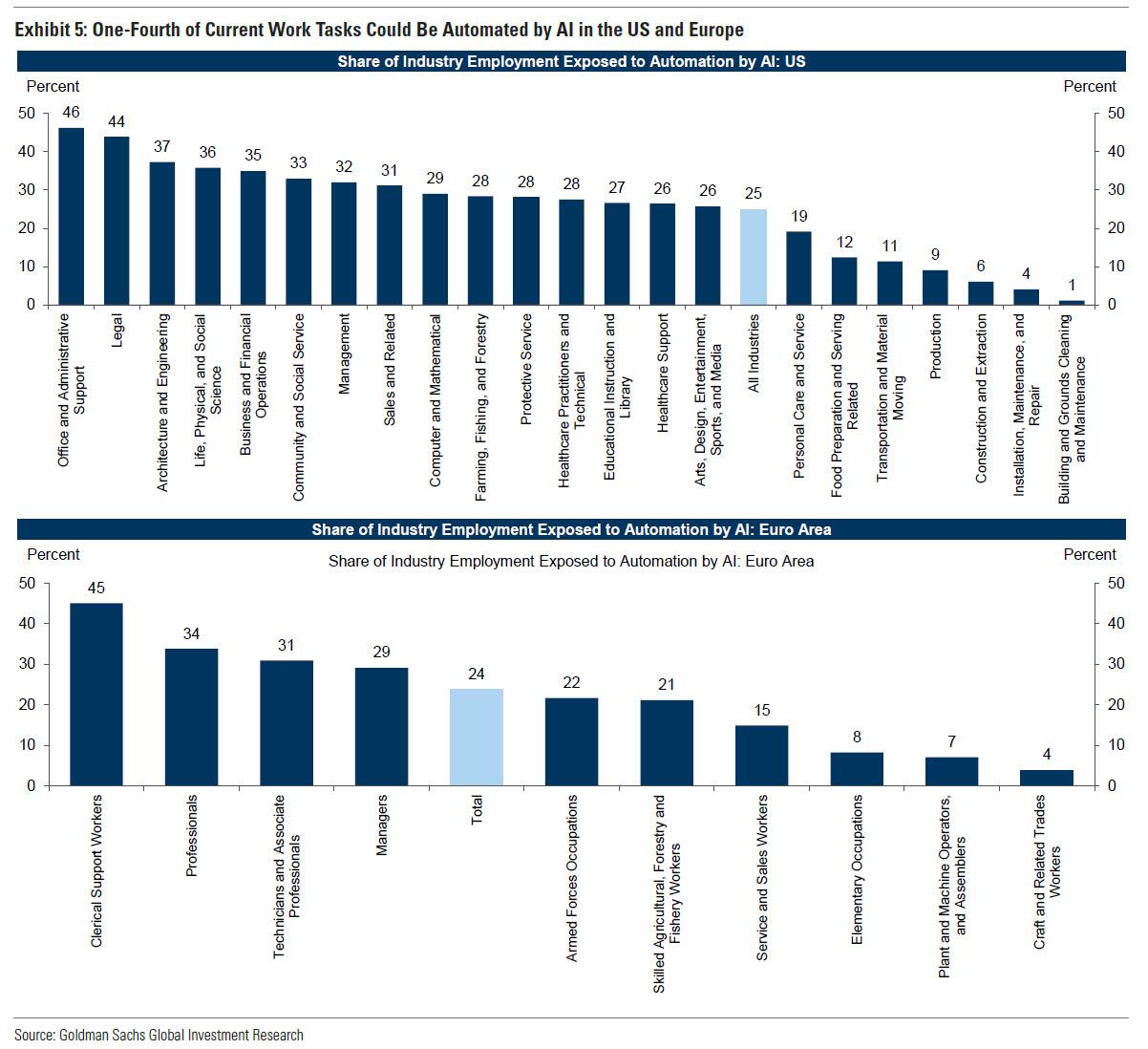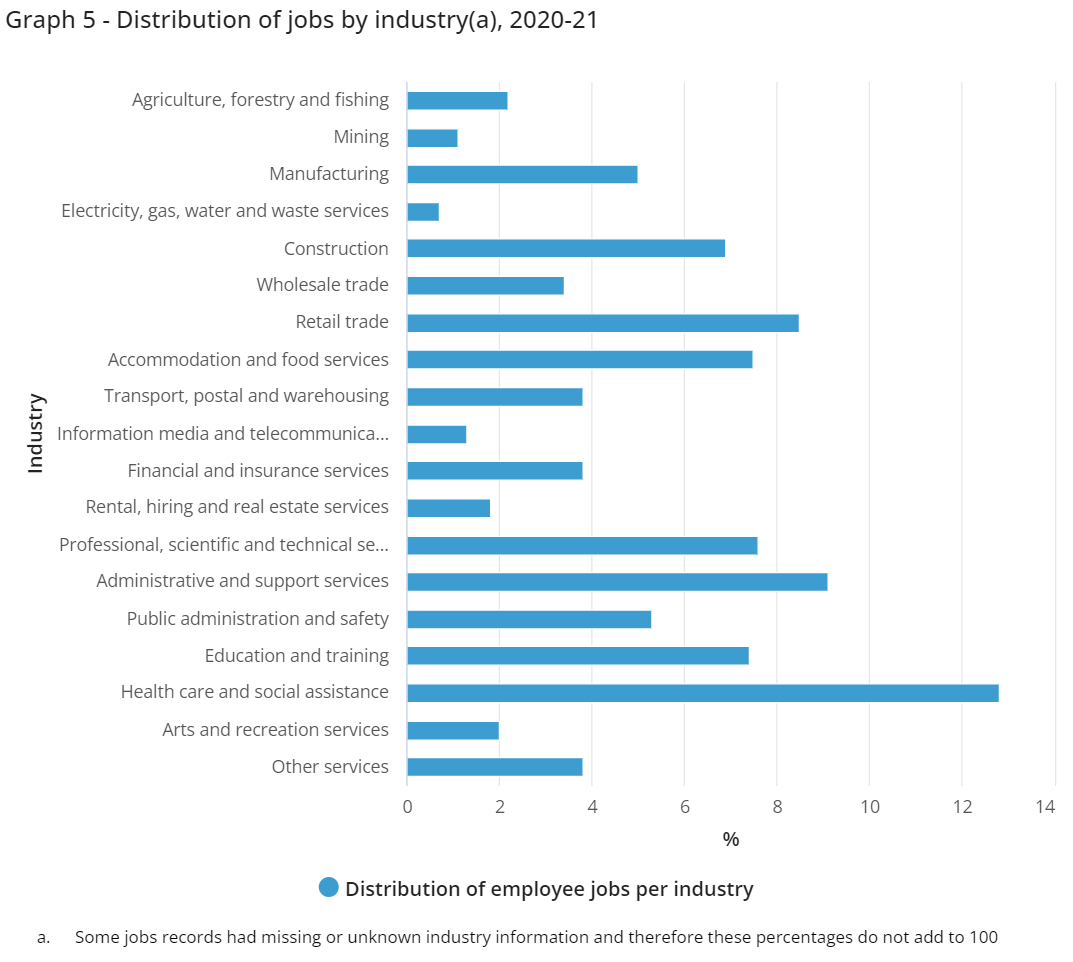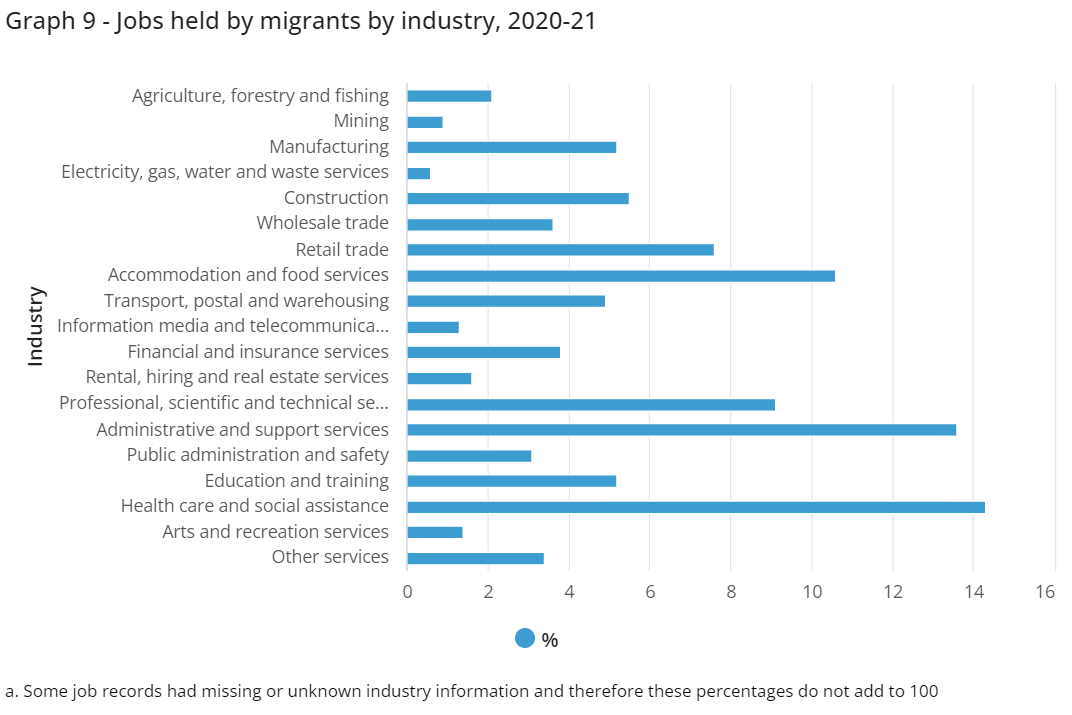Sometimes, being stupid can be an advantage, in the short term:
Australia is lagging international peers on the adoption of artificial intelligence and other advanced technologies, according to the Productivity Commission.
We are “pretty much toward the bottom of the pack of OECD nations,” Danielle Wood, chair of the commission, said at the AFR Workforce Summit on Monday, referring to Australia’s rich-world counterparts. “So there is a really important question, not just how does the government get the policy settings right and there’s a huge amount to be done there, but how do we shift closer to that frontier when it comes to technological adoption?”
…“On the jobs piece, we have been through these kind of waves of technological changes before,” Wood said. “It may be that this time is different to history, but certainly what history, at least to date has shown is every time we get one of these waves of change, net job creation is greater than job destruction.”
When it comes to AI, the question is, will it positively or negatively affect an economy driven largely by labour force expansion from offshore versus the traditional growth strategy of capital investment?
The one person I would never ask is Danielle Wood. While she ran the Grattan Institute, it produced reams of pre-immigration propaganda sponsored by vested interest Peter Scanlon.
The AI question for Australia is idiosyncratic because only Australia (and, more recently, Canada) pursues this stupid growth strategy.
So, for starters, Danielle Wood needs to stop relying upon lazy historical analogies and instead look out the window.
What she will see is an economy that has a devolving labour market. To accommodate the endless supply of Third World workers, Australia is making its investment more labour-intensive, not less so.
Does this render the labour market more or less at risk from AI than elsewhere?
Here’s where AI will displace people, according to Goldman:

Roughly 55% of Australia’s jobs are in segments exposed to one-third of workers being automated:

Where do migrants work?

Migrant workers preponderate in 70% of industries where one-third of workers will be at risk.
This back-of-the-envelope calculation suggests that AI will be harder to absorb for the population growth economic model than for the business investment-led model.
This could be good, meaning less need to import workers and a more significant productivity lift.
Unless, of course, you do this:
The Australian government has named a panel of legal and scientific experts to advise on potential guardrails for the research, development and use of artificial intelligence, its latest step toward mandatory regulation of the rapidly evolving technology.
Industry Minister Ed Husic announced the 12 members of the government’s new Artificial Intelligence Expert Group on Wednesday, including Bronwyn Fox, chief scientist at the Commonwealth Scientific and Industrial Research Organisation (CSIRO), Australia’s premier research institution.
Husic said the group had been formed to advise the government on transparency, testing and accountability for AI, including “options for AI guardrails in high-risk settings.”
“We want to get the balance right, and also allow low risk AI to flourish unimpeded,” he said.
And what, perchance, is low-risk AI? That which would displace a local lawyer? Or that which would displace an imported office worker? Does it even matter?
AI is universal. So whoever Useless Husic decides to protect will become much less competitive versus easily accessed alternatives offshore. All protection will do ensure a diminished productivity dividend for local capital to share with the remaining workers.
Even more troubling, if Useless Husic’s government continues to crush workers’ pricing power with migrants, and that weakness is exacerbated by more severe AI displacement among the imported workers, then the productivity dividend will all go offshore to AI-enabled jurisdictions.
This does not look good for Aussie workers and will demand a much more thought-through response than Useless Husic is currently considering.
Hello, universal basic income for Aussies.
And all of India, too!

